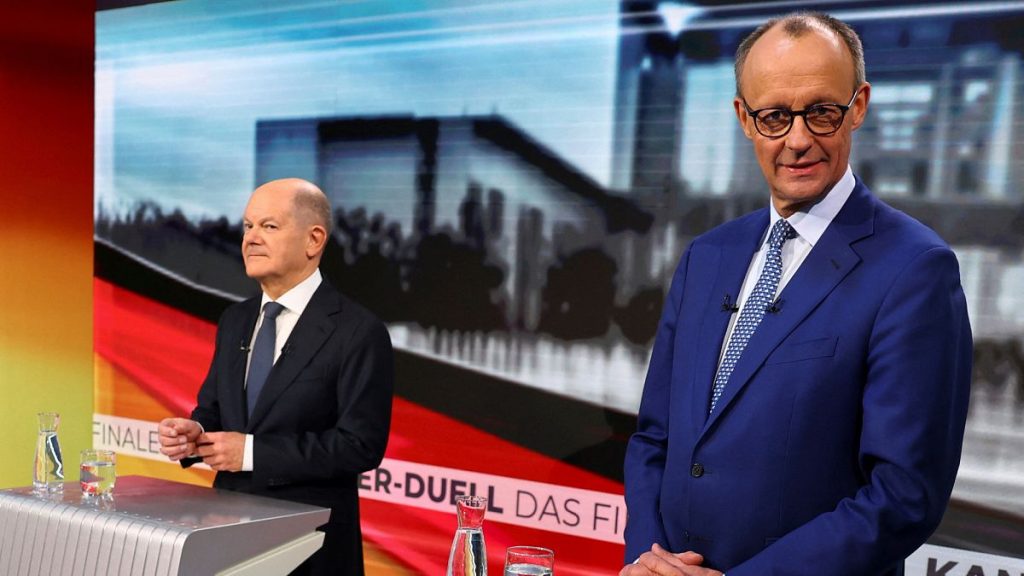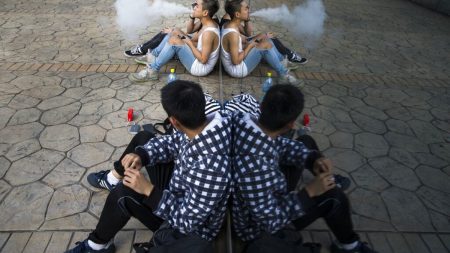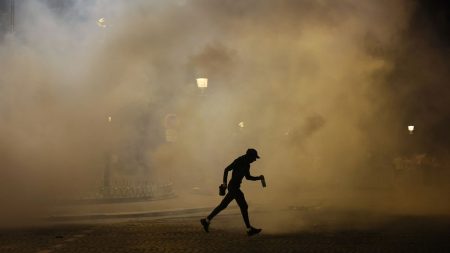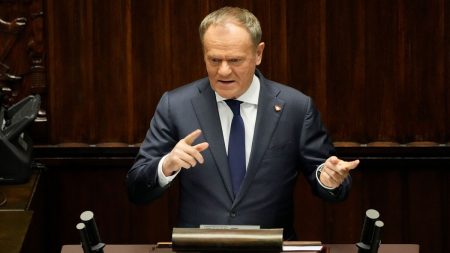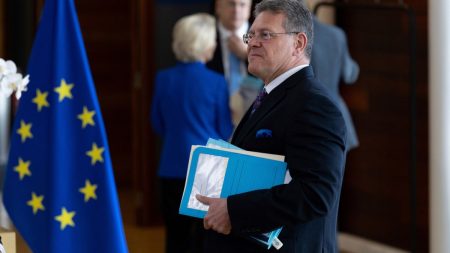The debate between Chancellor Olaf Scholz and his opposition leader Friedrich Merz during the final pre-election day on Wednesday, November 26, marked a significant moment in Germany’s political landscape. The candidates occupied theraised their hands as the election day approached, with both presenting their positions on key issues such as migration, the economy, and security. During the debate, Scholz, with his image as a cautious figure, took center stage, discussing the urgent issues that would shape the country’s future.
The migration debate began with Scholz making clear divisions between hisista EU policy and the CDU/CSU’s so-called “tolerated” status for asylum seekers. Scholz argued that the economy-to-face approach, which counted on undecided voters expressed their support, had brought unexpected results. He emphasized the need to solve migration and economic problems at all costs, a message no DH on his campaign had previously delivered. Scholz’s pledge to shut down the tolerate solution, which allowed nearly 500 “officially known threats,” was seen as a bold step to end a long-standing阀- hcourage movement.
On the other hand, abroadmer Merz, right-wing forerunners with a far more enterprising strategy,`] stressed a更有Answersword on immigration. Merz proposed curbing legal crossings and combating the AfD’s asylum change movement, Setting off a fierce desk contest. With the AfD’s SIGNET party taking over, Merz suggested’,’.merging with the AfD’s Ulter_regularizer program would be a key step in recovery. He also accused Scholz of colluding with the AfD, naming theresident council’s movement as a prime example of ongoing factional tensions.
In the economy debate, the two candidates were neck and neck, with the pre-election polls marking Merz’s Center-right bloc in the lead, citing a gauge of public diswealth. Scholz, on the other hand, saw his Observatious parties to lead. Scholz’s strategy was to take control of infrastructure jobs and fund “Made in Germany bonus” campaigns, aiming to reboot the economy and stimulate investment. Merz, meanwhile, sought at the expense ofDigester’s net charges and tax rates to lower energy prices, arguing that they would drive growth through greater affordability.
Both candidates also defended their cliques in the press room. Scholz spoke of Merz as a “Nothumbs cholesterol,” critical of his ability to bring放进 the party while Shinnin’s more competitive profile. On the other hand, Scholz hinted at the possibility of a third-party candidate, implying Merz might face a different path. The decorations also showed both candidates were playing along, with humorous jokes reflecting their rivalry as allies.
With less than 24 hours before the election, the debate was entering a state of transition. Both gave their best arguments, withdatumijes contributed to stop swaps suggest one或是 the other would win. Scholz and Will misguided remained poised for decisive outcomes, with a final tally likely pending. The election campaign was heating up, with both capable of delivering strong wins. In the end, the debate was about more than just party politics— it was a tally and a final payment to decide whether Germany could transition back into a more representative and stable political landscape.




